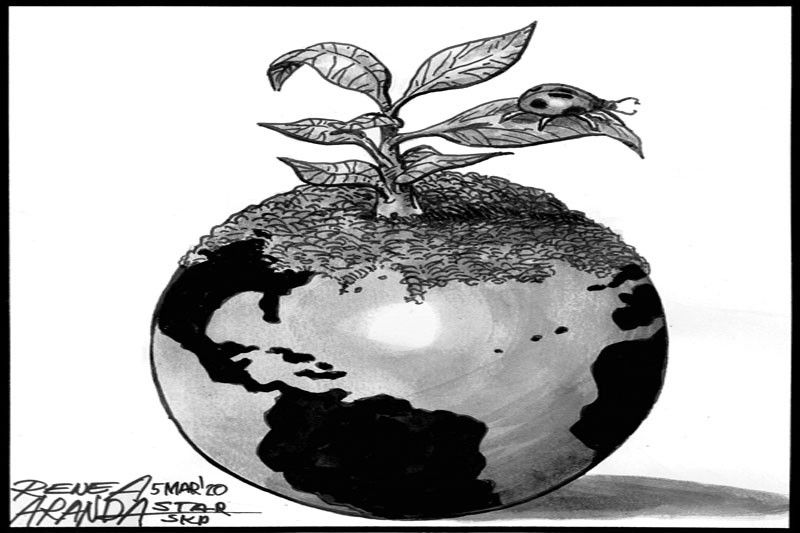EDITORIAL - Sustaining wildlife

There might be a silver lining in the spread of the 2019 coronavirus disease: governments are moving to adopt stronger measures against wildlife trafficking. Scientists believe COVID-19 jumped to humans from a live-animal market in China’s Wuhan City, epicenter of the contagion. While research remains inconclusive, among the wildlife being eyed are endangered ant-eating pangolins and bats.
The 2002 outbreak of SARS or Severe Acute Respiratory Syndrome was also traced to civets. In November 2018, the Global Wildlife Program of the World Bank placed the value of the illegal wildlife trade in the Philippines at up to P50 billion a year or nearly $1 billion, accounting for about 13 percent of the global total of $7.8 billion to $10 billion.
Among the wild animals heavily trafficked in the Philippines are pangolins, cockatoos and other bird species, marine turtles and geckos. Wildlife protection advocates lament that relatively light penalties make traffickers risk capture, considering the immense profits to be made. The lack of necessary expertise among the enforcers also makes it difficult to prosecute those involved in the illegal trade of wild animals and plants, according to the environmental advocates. They point out that some enforcers cannot even make the proper distinctions between endangered tree species, for example, and those that are not under special protection.
So a hopeful note was struck in this year’s observance of World Wildlife Day on March 3, as governments pondered more stringent measures against wildlife trafficking amid the public health and economic crisis sparked by COVID-19. Advocates are hoping that the crisis would change the mindset that wildlife trafficking and other environmental offenses are “victimless crimes.”
“Sustaining all life on Earth” is this year’s World Wildlife Day theme. As the World Health Organization warns that the planet is now in “uncharted territory” in the COVID-19 contagion, the message of United Nations Secretary General Antonio Guterres for World Wildlife Day resonates. He warned that “by overexploiting wildlife, habitats and ecosystems, humanity is endangering both itself and the survival of countless species of wild plants and animals.”
- Latest
- Trending























